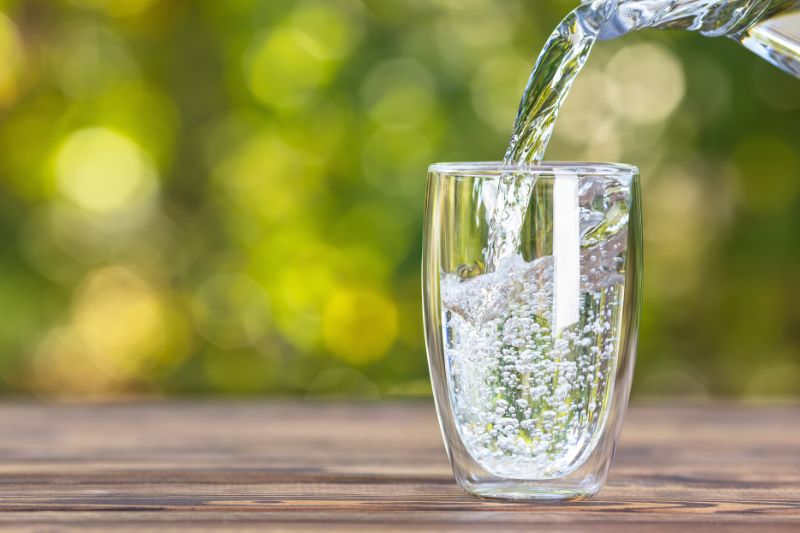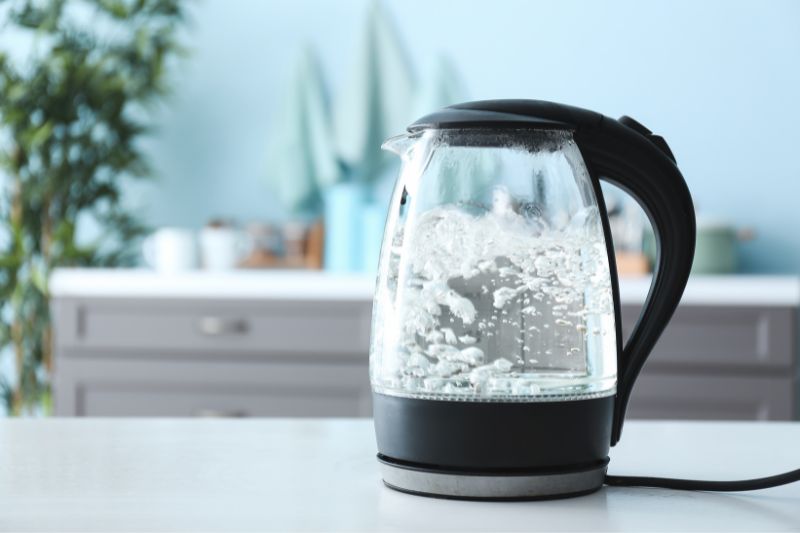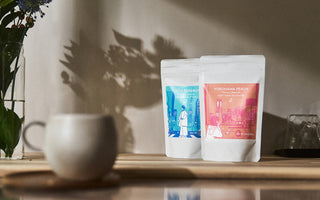Does Tea Count As Water Intake?
The earth is made up of 75% water. That is how essential water is, not just for this world but for everyone’s body as well. A healthy lifestyle is not just about food intake, a proper diet, and exercise. Everyone is advised to also stay hydrated and to take note of their drinking water intake. However, such a concept of water intake should actually be fluid intake, to be more accurate, so to speak. Water can do wonders for the body, both inside and out. While one could keep you clean on the outside by bathing or washing, water could also definitely cleanse you on the inside.

Water is needed for every organ in our body to function. Every cell in your body also needs refreshment through water intake. Water lowers one’s blood pressure and keeps one away from any inflammation. It also flushes out toxins from your body. Water helps regulate body temperature, which is crucial for various bodily functions and overall health. While it varies from person to person and way of life, especially for those who are physically active and sweat a lot, not to mention the effect of extreme heat during summer, it is standard knowledge that a person must drink at least 8 glasses of water before, or 3 to 4 liters of water now, to be considered to have the right amount of water in the body.
With busy lifestyles and evolving beverage preferences, many people often reach for alternatives like tea, coffee, or flavored drinks instead of plain water. While it's easy to assume that only clear, tasteless water does the trick, the reality is more flexible. Beverages like tea, which are primarily made of water, play a significant role in meeting your daily hydration needs—especially when consumed without added sugars or heavy creamers. Understanding that fluid intake can come from various sources makes it easier and more enjoyable to stay hydrated throughout the day.
However, not all the time we do take a glass of water as our liquid intake in our bodies. So, have you ever wondered whether a cup of your favorite tea counts as water intake too? This article is written for you to find out.
It’s actually more accurate to say fluid intake
While there are various substitutes out there to count as fluid intake and not actually plain water intake, the water content of each consumable varies. On the other hand, we all know that a cup of tea has only two ingredients: tea leaves and water. Mostly, the cup of tea is made up of water; after all, it’s just leaves drenched in water. It is also consumed by drinking it like a glass of water, whether it is hot or cold. Black tea, for instance, is known for its hydration properties similar to other tea varieties.
Scientifically speaking, there is no requirement that the liquid intake to keep yourself healthy should only come from a glass of plain water, and like any drinks such as coffee, tea, or even soda or other water substances from various foods, usually vegetables and fruits, a cup of tea is considered to count as your daily water intake and will keep you hydrated too. Herbal teas are caffeine free and can be counted the same as water for hydration purposes.
In fact, hydration isn’t just about quenching thirst—it’s about maintaining the body’s fluid balance, and nearly any beverage that contributes to that balance can be included in your daily intake. The water used in brewing tea retains its hydrating properties, and depending on the type of tea, you may even receive added health benefits such as antioxidants, minerals, and calming effects. Whether you’re sipping on green tea in the morning or winding down with a cup of chamomile at night, each cup helps your body meet its fluid requirements in a flavorful and health-supportive way.
Moreover, the concept of fluid intake extends beyond just hydration—it also plays a vital role in nutrient absorption, digestion, and cellular health. Since tea is rich in water content and often infused with natural compounds like polyphenols, flavonoids, and amino acids, it not only replenishes lost fluids but also supports the body’s internal systems. For individuals who find it difficult to drink plain water throughout the day, incorporating tea into their routine can be a practical and enjoyable way to stay hydrated while gaining subtle yet impactful nutritional benefits.

Myth busted
There are various articles or talks about staying away from caffeinated drinks if you want to stay hydrated, and coffee and tea are given a bad reputation for being diuretics or dehydrating one’s body by removing the water required for the body. However, it was only through recent studies that this myth was debunked. While a cup of tea might have an initial mild diuretic effect because of the caffeine content, which would make you urinate once you drink a cup of it, your body would still absorb the majority of the water from the cup of tea.
Tea and coffee also contribute to your daily fluid intake. Even so, just like drinking more glasses of water, drinking more cups of tea would allow you to urinate more, but together with the flushing out of toxins from your body, it is really just a matter of drinking more liquids to keep yourself hydrated and healthy and to urinate as one way to remove the harmful substances from your body.

In fact, around 7 to 9 cups of tea, which is more than the number of cups an average person would intake, would be the recommended healthy way of drinking tea on a daily basis. Hence, there is no need to worry about any dehydrating effect on one’s body by simply consuming a cup of tea. As long as one consumes less than 400mg of caffeine every day, it is totally safe to consume a few cups of tea on a daily basis.
What’s important to understand is that the body adapts to regular caffeine consumption over time. For habitual tea drinkers, the mild diuretic effect becomes even less significant, meaning the hydration benefits remain intact without causing excessive fluid loss. This adaptation helps explain why daily tea consumption is not only safe but beneficial, especially when paired with a balanced diet and active lifestyle. The idea that caffeinated beverages should be excluded from hydration counts is outdated and not supported by current research.
Moreover, certain types of tea, such as green, white, and herbal blends, often contain less caffeine than coffee or black tea, making them an even more hydrating option. Herbal teas, in particular, are entirely caffeine-free and provide additional calming, digestive, or detoxifying effects depending on the blend. This versatility allows tea drinkers to enjoy a variety of options throughout the day while supporting both hydration and wellness without the risks associated with excessive caffeine intake.
Conclusion
To sum up, taking the required number of glasses of water for your daily needs is challenging, but there are other alternatives out there that would count as water intake, such as a cup of tea. Tea also offers numerous nutritional benefits, including potential health benefits and the option to add natural flavorings without compromising its nutritional benefits. Drinking a cup of tea is counted as a water intake, and just to make sure that you are on the healthy side of drinking it, drink it without any added preservatives or processed sugar. Obviously, these refined substances would do you more harm than good.
Everything is recommended to be natural in order to naturally detoxify your body too! Also, while plain water is already a miracle wonder for so many benefits, adding tea leaves would surely provide more potential benefits for your health! While plain water could get rid of simple headaches or make your skin supple, green tea is found to have mental-health benefits for the drinker, such as reducing stress. Sports drinks can also be considered as an alternative hydrating option, especially during and after exercise, but they should be consumed in moderation due to their high sugar content.
Aside from its favorable taste, which is why green tea is a very popular drink nowadays, it promotes numerous health benefits, including neuroprotection, cholesterol-lowering properties, strong antioxidant capacity, quality emotional status, quality sleep, and suppression of hypertension. While plain water could make you feel full and thus help in maintaining one’s diet, a cup of green tea would surely be a natural diet booster because it contains bioactive substances like caffeine and EGCG, which can have powerful effects on metabolism and eventually reduce body fat. That is why, while both green tea leaves and plain water are natural fat burners by themselves, just imagine combining these two powerhouses when it comes to weight loss.
A cup of tea also helps in the regulation of cholesterol, aging, the reduction of the inflammatory response, and blood pressure. Surely, both youngsters must start developing the habit of taking care of their bodies to delay diseases of aging while making sure of the right fluid intake in the body. One could do this by drinking a cup of green tea. On the other hand, the older generation should drink this elixir to reduce further illnesses and cure whatever they uneasily feel in their bodies.
Get Free Bonus Books

Sign up for free to the Green Tea Club to get advice and exclusive articles about how to choose Japanese Tea, and tips, tricks, and recipes for enjoying Japanese tea.
About the author
Kei Nishida
Author, CEO Dream of Japan
Certification: PMP, BS in Computer Science
Education: Western Washington University
Kei Nishida is a passionate Japanese green tea connoisseur, writer, and the founder and CEO of Japanese Green Tea Co., a Dream of Japan Company.
Driven by a deep desire to share the rich flavors of his homeland, he established the only company that sources premium tea grown in nutrient-rich sugarcane soil—earning multiple Global Tea Champion awards.
Expanding his mission of introducing Japan’s finest to the world, Kei pioneered the launch of the first-ever Sumiyaki charcoal-roasted coffee through Japanese Coffee Co. He also brought the artistry of traditional Japanese craftsmanship to the global market by making katana-style handmade knives—crafted by a renowned katana maker—available outside Japan for the first time through Japanese Knife Co.
Kei’s journey continues as he uncovers and shares Japan’s hidden treasures with the world.
Learn more about Kei





